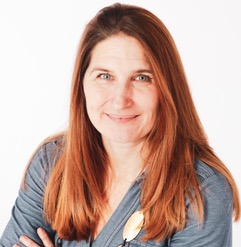Pilot Domain Transcending Indexing completed.
Results pilot Domain Transcending Indication
Pediatric palliative care requires specific expertise, customization and cooperation from professionals from various legal domains, such as the Social Support Act and the Youth Act. Yet people often run into the barriers within the legislation. The Cross-Domain Indication pilot changes this. The results are now known and presented. Leandra Beeloo, NIK coordinator and project leader of this pilot, tells us more about the importance of this.
What was the motivation for this pilot?
'The patient journeys for pediatric palliative care that were published in 2018 show that parents experience many bottlenecks in organizing the necessary care for their children with a life-threatening or life-shortening condition. Due to the different care systems that parents have to deal with, they run into barriers within the legislation. In addition to the stress and unrest that this causes, it also means that it takes a long time to get appropriate care arranged. While research by the Children's Comfort Teams shows that by quickly realizing the necessary care for the child and support for parents/family, crisis admissions of palliative and palliative-terminally ill children in hospital can be prevented. As a result, the overload and dropout of parents (and siblings) is reduced.'
What was the purpose of the pilot?
'The aim was to investigate how parents can be relieved in the organization and indication of the necessary care. By providing the child and family with one indication – which transcends all laws – for appropriate care and support. After all: how it is arranged at the back in terms of financing should not matter for the care that is needed at the front! In consultation with the Knowledge Center for Palliative Care for Children, the Branch Association INtensieve KindZorg (BINKZ) therefore submitted a subsidy application to ZonMw in 2020 to carry out a multi-year pilot in the region of two Networks for Integral Child Care (NIK). This application was approved by ZonMw and the pilot was carried out between 1 October 2020 and 1 September 2022.'

What do you remember the most?
A number of children have died during the indication process, or not long after. This makes it poignantly clear why long lead times are disastrous for these children. I found the case of a girl who needed 24/7 care and her mother was unable to care for her due to circumstances, very intense. Finally we had found a good place where she could be nursed 24/7. Her mother was assigned a house in the same place of residence. Because there was no contact with the health insurance, the girl could not stay there. It turned out that the care was first funded from an RMA (Medical Care Asylum Seekers Regulation) and had to be taken over by the health insurance that the relevant municipality had opted for. There was no other place for the girl in the area. Since, given her past experiences, it was absolutely not in the girl's best interest to move her again, we wanted to do everything we could to keep her there. In the end, we managed to come up with a tailor-made construction with the insurer and the housing and accommodation facility, so that the girl could continue to live there, near her mother.'
Why is it so important that the report is there?
'To provide insight into the bottlenecks, challenges and solutions within the legislation and regulations in the area of indication within child palliative care. So that we can work together towards one indication across all domains, so that appropriate care and support can be provided.'
What are you most proud of?
'That we as an indication team (a team of professionals from both the Youth Act, the Health Insurance Act and the Long-Term Care Act) are increasingly a household name and are taken seriously by all parties. We have shown that customization is both necessary and possible in pediatric palliative care.'
How's it going?
'We want to continue to use the lessons learned from the experiences gained and the results achieved at case level and embed them in a broader context. We also want to investigate which constructions are necessary and possible to better align the laws and regulations within the various laws. As for the sequel; three regional indication teams will be added to ensure national coverage.'
If you want to contact the indication team, Leandra Beeloo is the point of contact.
View the final report.
To read more about the Cross-Domain Indication pilot, click here .